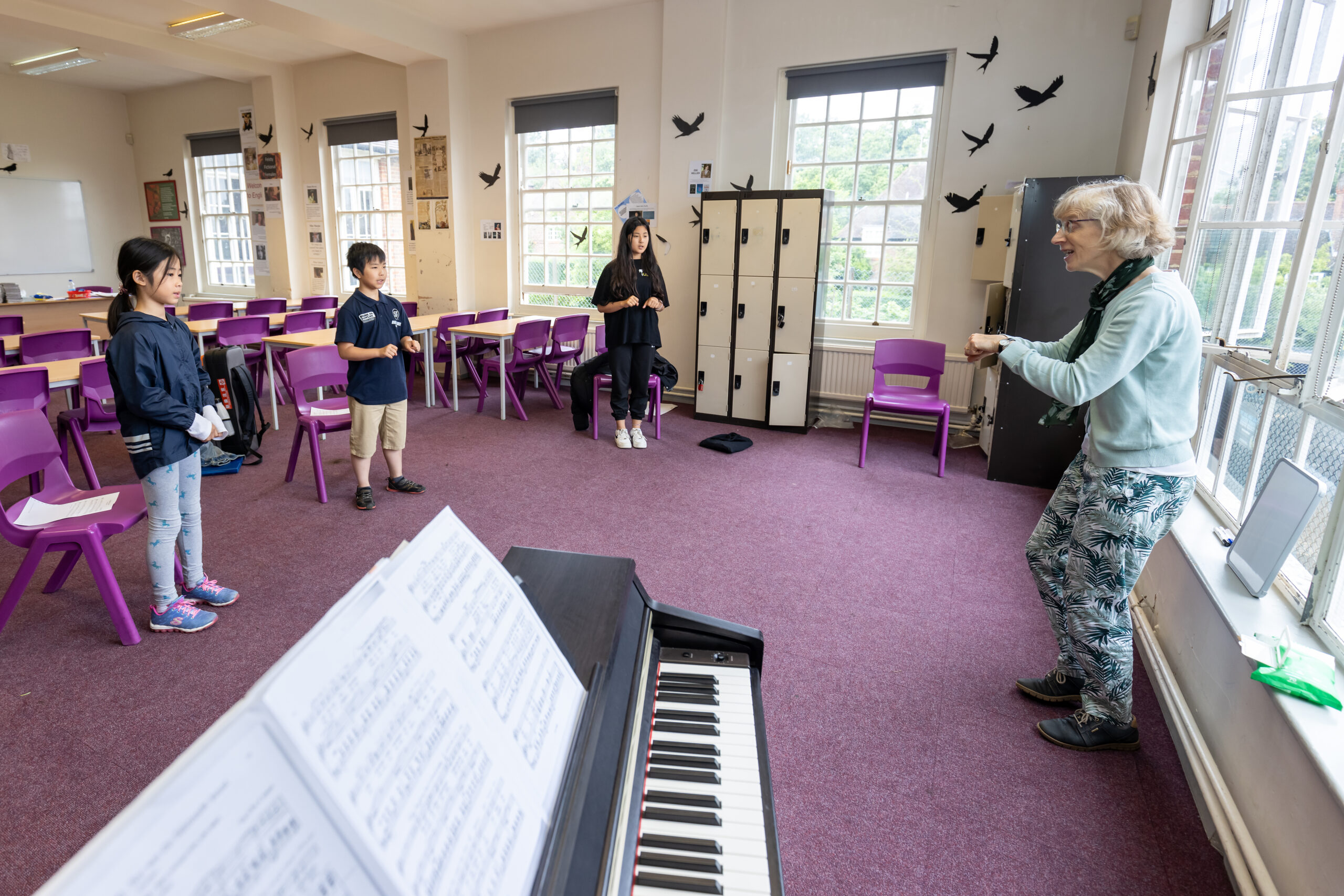In this post YMC’s voice/aural tutor and choir conductor, Alison, answers some frequently asked questions about YMC’s voice/aural classes.
Why take part in voice/aural skills lesson?
“Voice/Aural lessons are fun and interesting. You will learn a lot like signing with your hands the notes of the major scale, singing with others, listening to a wide range of music and talking about what you can hear. It’s relaxing and stimulating at the same time.“
What can students expect from a voice/aural skills class?
“In a typical voice/aural lesson you will sing the register (the rest of the class will sing back your name in the melody you sing to them). You will do a physical warm-up eg being a metronome (swaying from side to side slowly =minims), adding clapping with your hands (=crotchets) and speaking the quavers. You’ll take turns clapping rhythms that Alison claps first (this is called Rhythmic Memory) and then take turns singing back melodies that Alison sings to you (this is called Melodic Memory). You’ll learn to use the Kodaly hand signs and sing back silent melodies signed by Alison. You’ll listen to a piece of music and describe the mood, character and clap in time with the pulse. For the higher levels we’ll describe the tonality, texture, dynamics, structure, phrase structure, cadences, style and period. Alison plays the piano and has an endlessly wide selection of music to choose from! In some classes you’ll learn some elements of notation.”
Voice/aural skills classes- are they group singing lessons?
“Voice/Aural classes can include some advice on posture, good breathing. vowel shapes and other aspects of singing technique, to encourage good pitching . It’s important to learn to reproduce accurately the pitches you hear. We enjoy singing complete songs to put all this into practice.”
Are the classes focussed around preparing for Grade exams?
“Graded exams are a helpful guide to how you are getting on with your listening. Alison is aware of all the syllabus requirements for ABRSM, TCM and MTB examining boards and incorporates elements of all these into the weekly classes. If a student lets Alison know what grade they are aiming for we will cover exactly what’s needed at the right time.“
When do Voice/aural classes meet? And are classes set by level? How do you know which class is right for each student?
“The voice/aural classes are on Saturday mornings at Bigwood House and run 9-11.30am. Each half-hour class is given a name (eg Junior 1, Junior 2, Intermediate, advanced) and Alison will give you a try-out in the class that looks best suited to your experience of listening and understanding music. When a student is ready to move up to the next class, Alison lets Henry know.”
Are voice/aural skills lesson the same as the choir? Is it good to take part in both classes?
“More than half the YMC choir also attend group aural/voice classes with Alison. It’s a great way to enjoy singing and learn how to use your voice, while extending your listening and analytical skills.”

